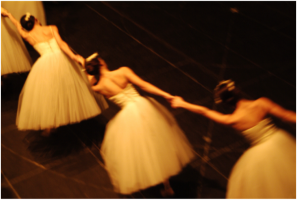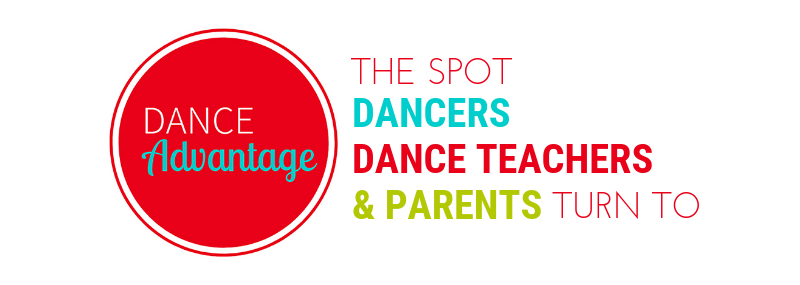I’ve been asked this question a lot.
Usually it is from a parent but sometimes it is from a teen or adult asking for themselves.
My answer is another question.
… To do what?
 The word ‘should’ implies there is a goal, a dream, a desire behind your question. With no knowledge of what your child’s goal, dream, or desire is, neither you nor I will be able to answer your How Much Dance Should…? question. Begin at square one and continue play on your next turn.
The word ‘should’ implies there is a goal, a dream, a desire behind your question. With no knowledge of what your child’s goal, dream, or desire is, neither you nor I will be able to answer your How Much Dance Should…? question. Begin at square one and continue play on your next turn.
My child has a defined goal, a dream, a desire. Now can I ask the question?
You can, but
- I don’t have an answer. You and your child do.
- There is no right answer. There is no magic number of hours to be clocked. No student or dancer is the same, no flirtation with or pursuit of dance is alike.
- The answer changes because the destination is not a fixed one.
Conclusion: Your answer to the above question will be unique to your child.
What is the appropriate amount or extent of training for my child at this time?
Ah, that’s better. Here are some questions that will help you find your answer…
“What are my child’s interests?”
Look for opportunities in which your child can try and gain insight into different styles without adding another class to the schedule. It’s a great idea to find a studio which offers the chance to “taste” different dance forms during workshops, via visiting teachers or master classes, conventions, or going to see dance performances. This will help your child make decisions about where he would like to increase his commitment level.
“What and how deep are my child’s motivations?”
If your child is asking, investigate the reasons she wants to take a new or additional dance class. Costume style, choreography, musical accompaniment, or maintaining friendships may be no less valid or less important to her than the desire to enhance her skills. Dance should be fun, too! Do not devalue or brush away these motivations, they are part of the equation.
BUT, the investment of weekly classes is significant enough that it pays to know if it is the desire for improvement and mastering skills that is motivating her, or something else. If your child’s motivations are all superficial, what she learns is likely to be too.
Do weigh and consider all of her reasons and include your child in the process. This is the only way to be clear about her motivations.
“Is my child ready for more?“
She’ll ask for it when she wants more. But is she ready?
If you’ve taken the time to go through the process above, your child is less likely to find themselves overworked or underprepared for an increased level of commitment or activity.
Do be willing to reevaluate, though, if your child is showing signs of stress physically, mentally, or emotionally and cut back if necessary. Things happen, environments change, people change.
“Has my child established a good foundation on which to build?”
His foundational class or two, whether creative dance, ballet, jazz, or tap should offer good, quality technique and training of appropriate skills. Good training is possible in any of these forms but not necessarily happening in every class at every school.
What is quality training?
In short, good training offers classes and curriculum which are designed to develop the tapestry of skills needed for dance – control, body awareness, strength, flexibility, musicality, artistry, and more.
Whether curriculum is based on a set syllabus or backed by other forms of teacher training, education, or experience, it is important to find a teacher who has a method to his/her madness.
No matter if yours is a recreational student, or on a professional track, or has the desire to change his track, if the teacher is not teaching with any real direction or reason behind the exercises, then you want to find someone who does.
If he has received quality training from instructors who also care about his well-being, allowed him to discover the rewards of self-motivation, rejoiced with him in his successes, encouraged him when he has struggled, and instilled respect and enthusiasm for the art of dance, he’s got a strong foundation on which to build.
The Equation
Interest + Motivation + Preparedness = Hours + Diversity + Challenge
Hours is the number of hours spent on the activity.
Diversity is the range of dance styles and dance activities.
Challenge is the level of difficulty of the class or activity.
When there is equilibrium between these two sides of the equation, the amount of training is right where it should be.
How to work out the equation
When you work out for fitness, you go at a pace or a level of challenge until this becomes easy and then you step it up with more repetition and more challenge.
Similarly when the interest, motivation, or preparedness on one side of the equation increases, the values on the other side should increase to match.
The equation is really very simple and logical, yet it takes communication with your child (on whatever level they are capable of discussing it with you) and requires observation and some homework on your part.
The investigation may raise more questions.
How Do I Balance My Time and Money Expenditure With My Child’s Dance NEEDS?
What if he/she wants to be a PROFESSIONAL?
You know your child’s desire is to be a professional dancer. You know that it is his/her desire and not your own. And you want to know if this changes anything about what I just wrote above.
Hint: It doesn’t. But I know you want the nitty-gritty on what it takes to get your child from point A to B.
Did the above article answer at least some of your questions?
Does the equation make some sense in a universal way?
What else do you want to know?
Nichelle Suzanne is a writer specializing in dance and online content. She is also a dance instructor with over 20 years experience teaching in dance studios, community programs, and colleges. She began Dance Advantage in 2008, equipped with a passion for movement education and an intuitive sense that a blog could bring dancers together. As a Houston-based dance writer, Nichelle covers dance performance for Dance Source Houston, Arts+Culture Texas, and other publications. She is a leader in social media within the dance community and has presented on blogging for dance organizations, including Dance/USA. Nichelle provides web consulting and writing services for dancers, dance schools and studios, and those beyond the dance world. Read Nichelle’s posts.

